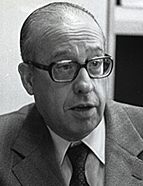

This book is a synthesis of methodology – a method of analysis and historical construction -, a masterpiece of the author’s style. For a good reading and understanding of A expansão quatrocentista, one must read Documentos sobre a expansão portuguesa, another of Godinho’s works republished in the meantime. Indeed, in the work of this author, innovative reflection is combined with erudite and documentary mastery. Creation and reflection combine with rigorous information to build magnificent historiographic constructions. Furthermore, his erudition is a problem issue in itself in that the questions he raises derive from thorough reflection on the theme and related themes. This is the right time to find the elements he needs to support his efforts to discover the discoveries in Portuguese History. This was supplemented by his work Os Descobrimentos e a Economia Mundial [Discoveries and World Economy] where he offers a comprehensive view of the Portuguese expansion in the 15th-17th centuries, covering both its successes and failures. With the understanding of structures, conjunctures, and events interacting (interwoven without adopting Braudel’s three-tiered view) to bring us before total history. The “total History” or “global History” ingrained in the longings of the Annales historians were seldom as successful as that.
The anthology of texts by Alexandre Herculano dates back to Godinho’s late years, with a problematic foreword in which he also offers a reinterpretation of Portugal from the times of Liberalism. He called him “Herculano, the citizen and historian in the world of progress.” This view of the historian was constantly as an interpreter not only of the past but also having the duty to explain the present in order to open new paths for the future. Hence his proximity to the liberal, studying this twofold dimension, where political and cultural aspects are inevitably enhanced – always in accordance with the old methodology he had developed from the teachings of Lucien Febvre. And where, once again, as always, the history of science and the history of technical developments are brought to the foreground. Because the explanation of the man – besides the exceptional genius that history does not unravel – is contained in the social environment in which he lived and acted. Seeking to alter what he perceived as wrong, trying to right paths that had gone astray. In those last original pages of a work that comprehends seventy years (from 1940 to 2010), the reader who is familiar with Magalhães Godinho’s work may often find a parallel felt and perchance loved by the writer with his object of study.
